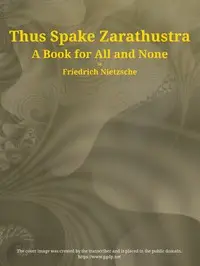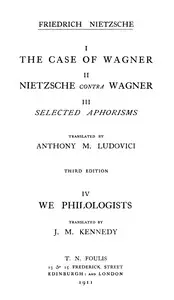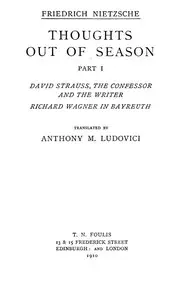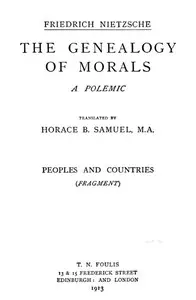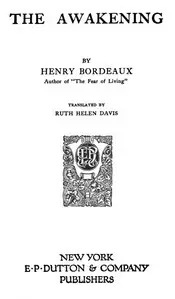"The Joyful Wisdom" ("La Gaya Scienza") by Friedrich Wilhelm Nietzsche is a philosophical work written in the late 19th century. This text presents Nietzsche's exploration of themes surrounding existence, the nature of humanity, and the role of laughter and joy in the human experience. It serves as a bridge between his earlier works and the more famous "Thus Spoke Zarathustra," capturing his evolving thoughts on morality, knowledge, and the essence of life itself. The opening of "The Joyful Wisdom" sets the stage for a rich philosophical investigation into the complexities of existence. Nietzsche begins by reflecting on humanity's constant struggle for survival and meaning, arguing that even the perceived "evils" of human nature can contribute positively to the conservation of the species. He critiques established morals and values, suggesting they often serve to obscure the chaotic and instinctual aspects of human life. Furthermore, Nietzsche introduces the concept of "joyful wisdom," positing that a transformative laughter, one rooted in understanding life's absurdities, is integral to personal and collective growth. Ultimately, this introduction hints at Nietzsche's belief in the power of the individual to shape their own understanding of existence amid its inherent contradictions and challenges. (This is an automatically generated summary.)
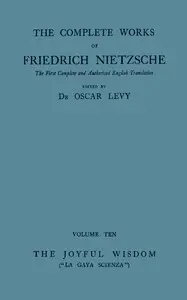
The Joyful Wisdom ("La Gaya Scienza")
By Friedrich Wilhelm Nietzsche
"The Joyful Wisdom" ("La Gaya Scienza") by Friedrich Wilhelm Nietzsche is a philosophical work written in the late 19th century. This text presents Ni...
Friedrich Wilhelm Nietzsche was a German classical scholar, philosopher, and critic of culture, who became one of the most influential of all modern thinkers. He began his career as a classical philologist before turning to philosophy. He became the youngest person to hold the Chair of Classical Philology at the University of Basel in Switzerland in 1869, at the age of 24, but resigned in 1879 due to health problems that plagued him most of his life; he completed much of his core writing in the following decade. In 1889, at age 44, he suffered a collapse and afterward a complete loss of his mental faculties, with paralysis and probably vascular dementia. He lived his remaining years in the care of his mother until her death in 1897, and then with his sister Elisabeth Förster-Nietzsche. Nietzsche died in 1900, after experiencing pneumonia and multiple strokes.

